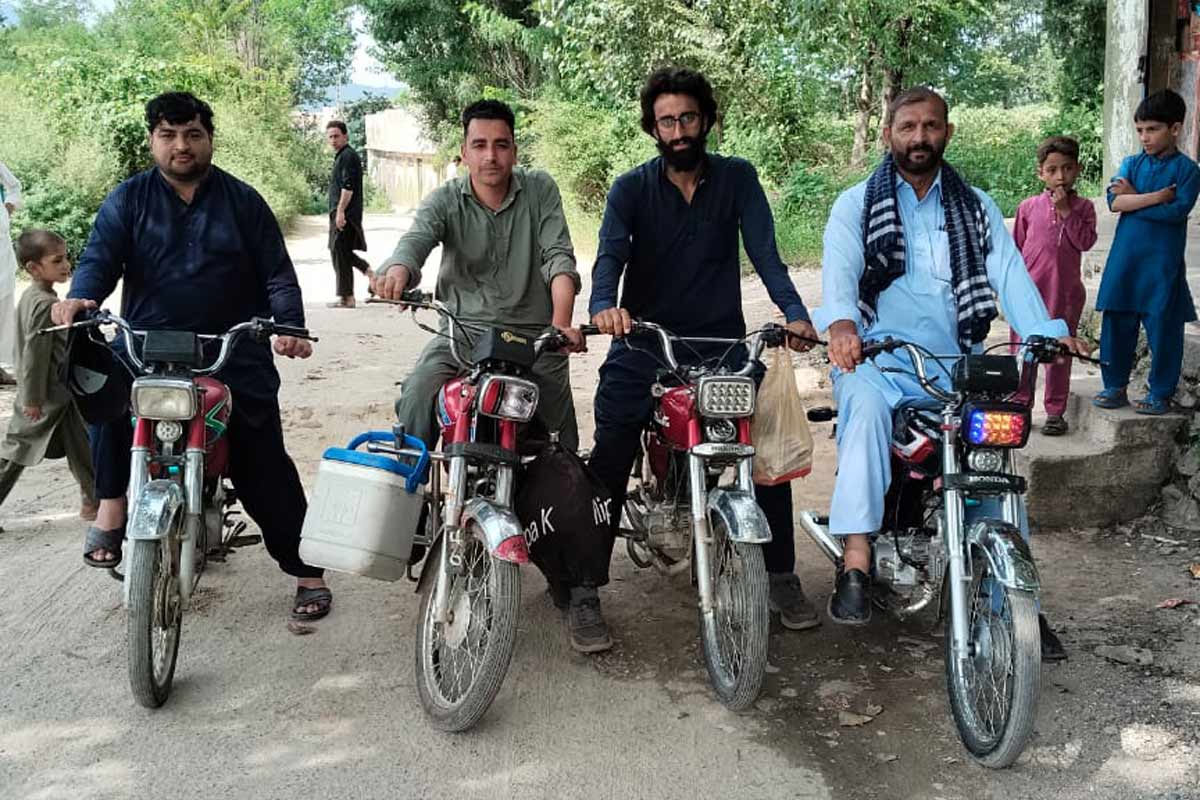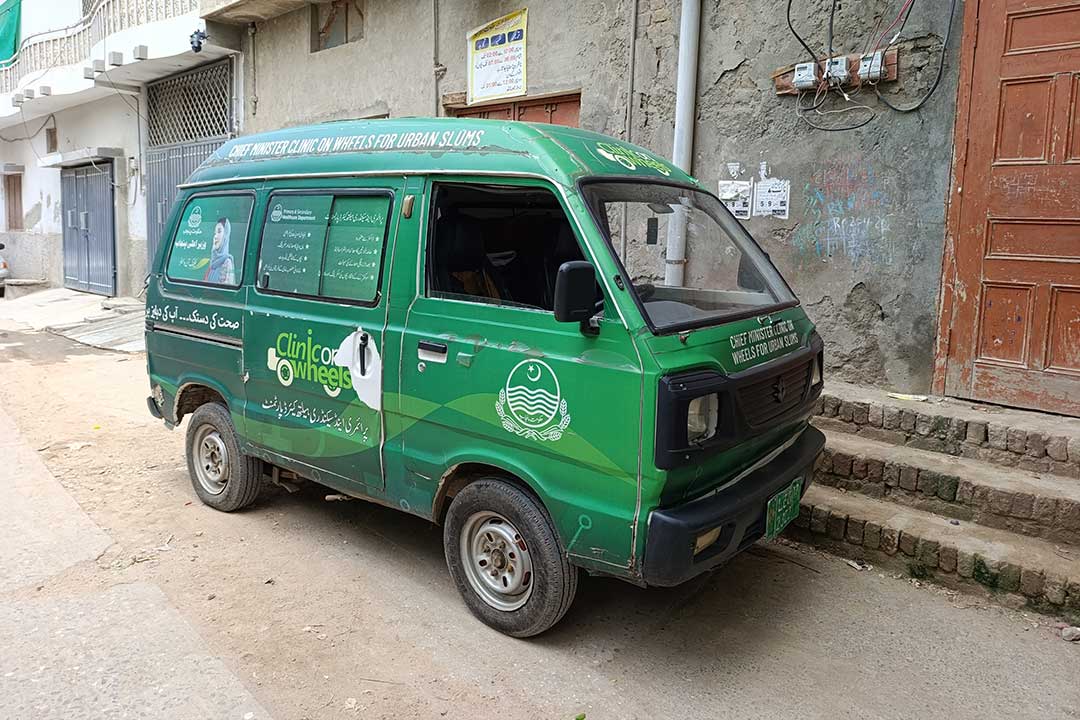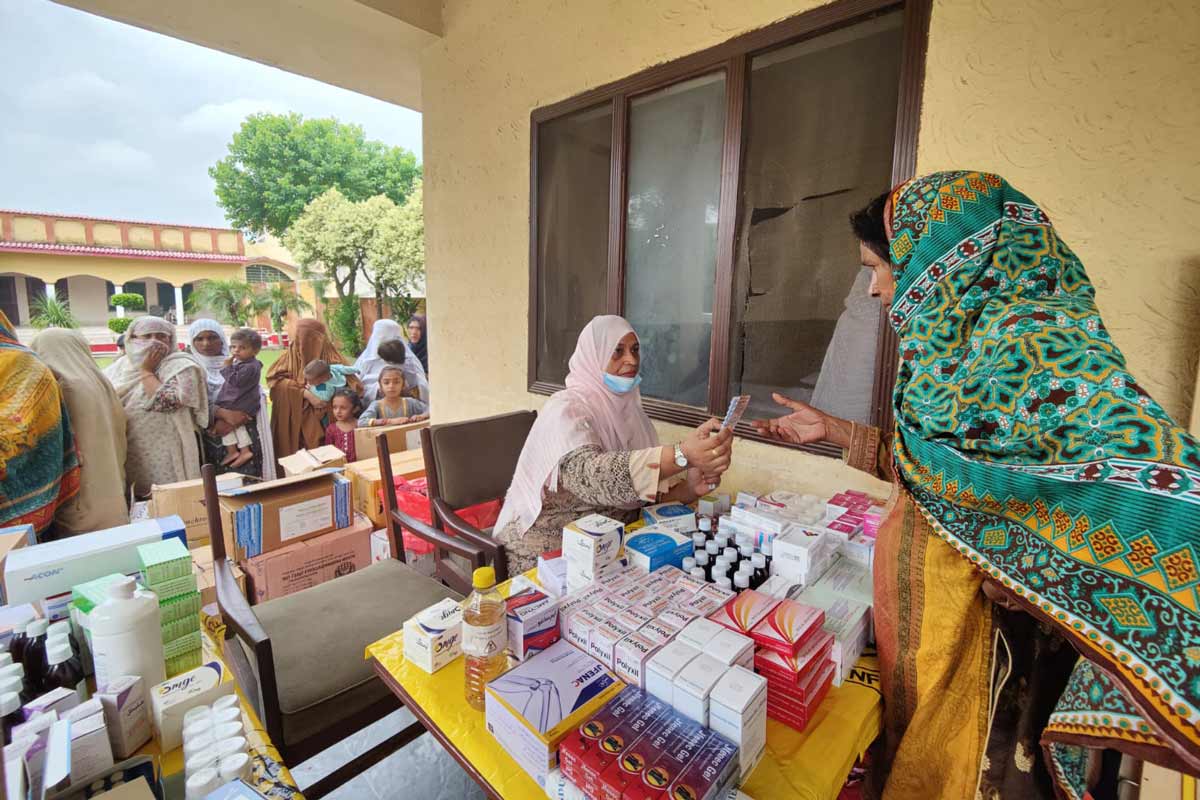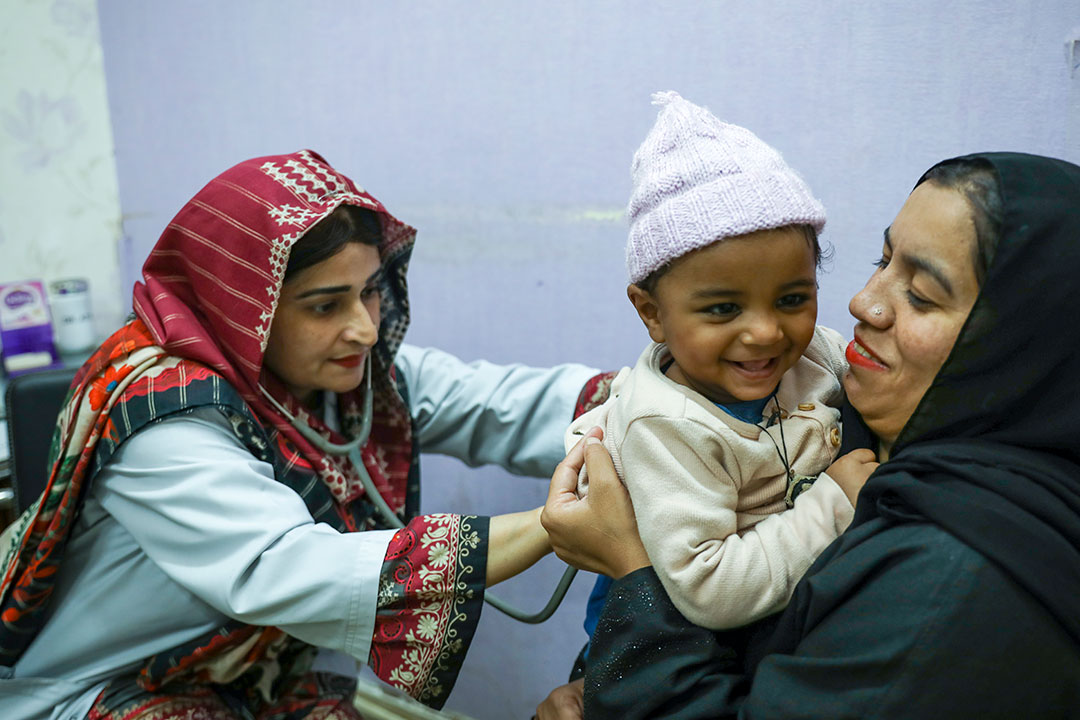Flood-displaced and nine months pregnant: women survivors of Pakistan’s deluge tell their stories
An estimated 650,000 of the many millions displaced by Pakistan’s 2022 floods were pregnant women. VaccinesWork caught up with three of them, to hear their tales of loss, survival, and new life.
- 4 May 2023
- 8 min read
- by Rahul Basharat Rajput
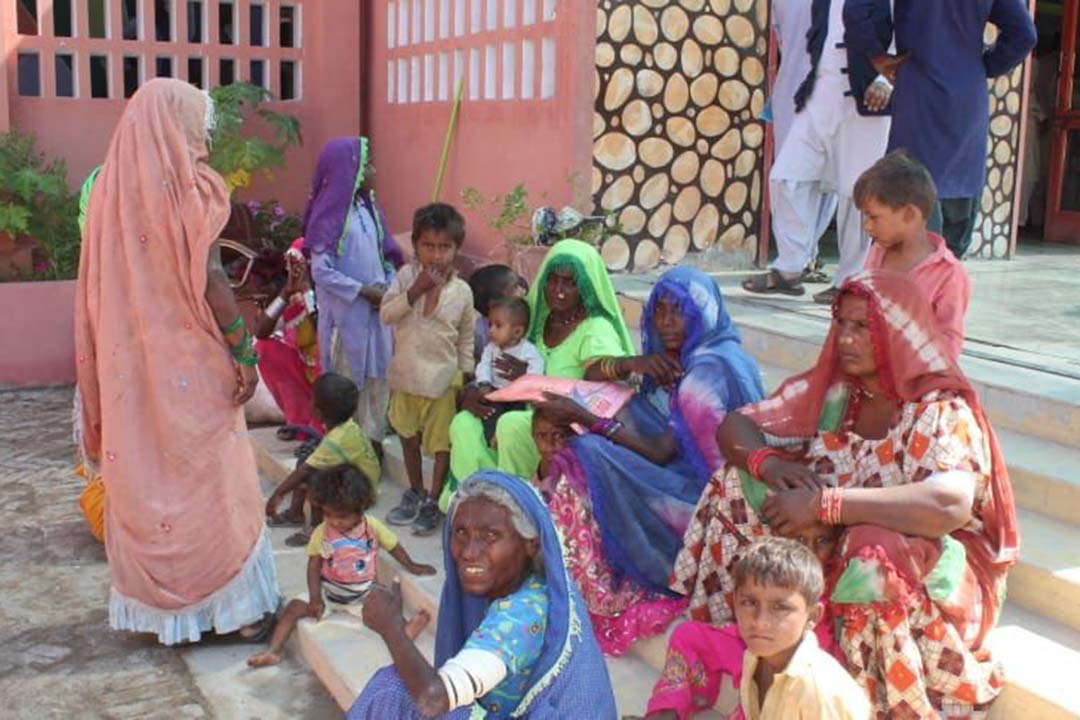
Giving birth in a field hospital: Zareena's story
Zareena Bibi, 35, a resident of Swat district in Pakistan, had never in her dreams imagined that she would give birth to her third son in such terrible circumstances. Shaheen Gul was born in a field hospital of a temporary health camp established by the government for displaced flood victims.
Zareena Bibi and Hazrat Gul and a further five members of their family numbered among the more than 30 million people displaced during 2022's disastrous floods.
In Swat, in the north-western province of Khyber Pakhtunkhwa (KPK), hundreds of families lost their homes when flash-floods hit the river-fed valley.
Gul cannot forget the efforts of the health workers. “They were doing everything they can – like doing operations in health camps and arranging vaccines for the newborns in very difficult situations.”
Hazrat Gul and Zareena Bibi had earned a living tending the fields of a local landlord, and lived, with their two boys, in a mud house the landlord had provided to them.
Zareena was entering her third trimester when the floods wiped away their house, forcing the family to run for their lives, leaving everything behind.
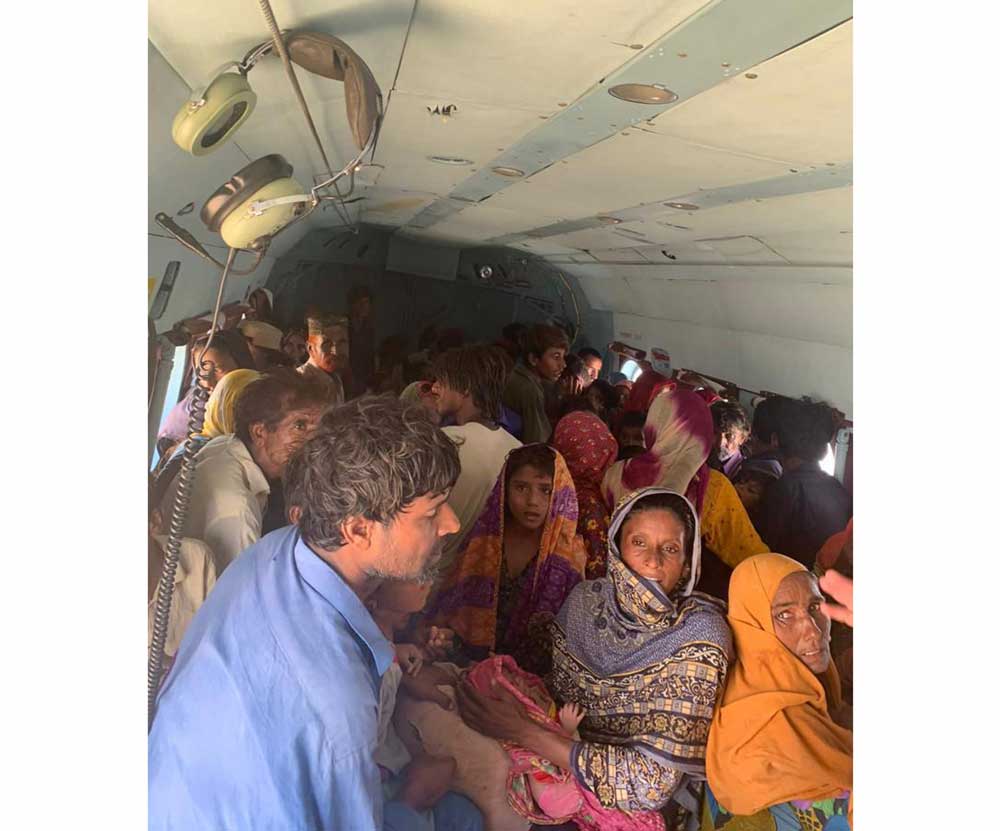
Floods had also washed away the area's primary healthcare infrastructure, its Basic Health Unit (BHU), which was the only government-funded facility for poor people here, offering them, among other things, vital antenatal care.
In the wake of the large-scale flooding, the United Nations Population Fund (UNPF) estimated that there were 650,000 pregnant women among the flood victims, including 73,000 expected to deliver in the month of September 2022. Zareena Bibi was one of them.
"It was horrible and I was full of dread with thoughts of losing the life of my wife and child," said Hazrat Gul.
It was early in the flood-days for the Swat Valley, and everything destroyed in the area, he said. There was no connectivity, and the family was living in a camp amid miserable conditions.
Gul recalled that families like his in the camps had no idea where they would get maternity services, or how they would call upon the expertise of doctors, nurses, midwives, or access the medicines they might need.
"But with the limited resources of government and international agencies, support started pouring in, giving us a ray of hope of life," he said.
Gul said that while his son Shaheen was not born in an ideal, safe situation, and his wife also suffered some trauma in the maternity health camp, he cannot forget the efforts of health professionals.
"They were doing everything they can – like doing operations in health camps and arranging vaccines for the newborns in very difficult situations," said Gul.
"I was under depression": Safina's story
Like Zareena Bibi, Safina Jan, 27, hailing from the Charsadda district of KPK, also had a story of misery and survival. She was six months pregnant when floods hit her region and moved to a camp with her husband, a six-year-old daughter, and her mother- and father-in-law.
"Life in a camp was completely different, with no surety of food, clean water, and medicines," said Safina Jan.
Before the floods she used to visit the gynaecologist in her village BHU for medical examinations, vaccinations, and getting vitamins before the delivery, because the doctor was worried about her weight. But floods swept away the medical facility of her village, changing everything for her family.
"We pregnant women in camps were not only worried about ourselves but also for those who we had to deliver into this world," she said.
Have you read?
Safina recalled how the food shortages and poor access to clean water, and lack of medicines in the camp made her fear for the health of her unborn child.
Soon however, the National Disaster Management Authority and its partners, including the World Health Organization (WHO), had started reaching out to the affected people – particularly pregnant women – to connect them with healthcare.
Authorities in camps started collecting data on the pregnant women, Safina remembered, and provided them with special healthcare and food supplements.
She delivered daughter Sughra in the month of December 2022, and vaccinated her child with BCG and OPV-I, pneumonia vaccines in the health camps before moving on to her settled home.
"I was under depression, and not expecting that I will deliver the baby easily in the health camp, but somehow the doctors and health system reached out to me with their resources in very testing times," said Safina Jan.
“We pregnant women in camps were not only worried about ourselves but also for those who we had to deliver into this world”
– Safina Jan, 27
United Nations agencies working in flood-hit areas of Pakistan had raised the alarm that pregnant women in the affected region were threatened with malnourishment, urging the international community to expedite its support for the hundreds of thousands of expecting mothers.
Nine months pregnant and still displaced: Tasneem's story
Tasneem Akhtar 25, belongs to the Dera Ismail Khan region of KPK. Here too, hundreds of agricultural families were displaced amid the 2022 floods.
Tasneem numbers among the millions of Pakistanis who remain displaced. She is still living in a camp, because her family cannot afford to build a new home.
Weighed down with traumatic memories, she is also nearly nine months pregnant, and expecting to give birth in May.
"We lost our home, animals, and crops when the flood water entered there and all of a sudden we were left with nothing," she said.
Tasneem said tragic scenes were all around when initially people were searching for a shelter in the camps with no basic necessities of life.
She said healthcare was a secondary thing – "initially, having food, after saving lives, was our priority".
Tasneem also explained that the health infrastructure in her area had been completely destroyed by floods and people were getting sick because of waterborne diseases, adding that pregnant women were more at risk in this situation.
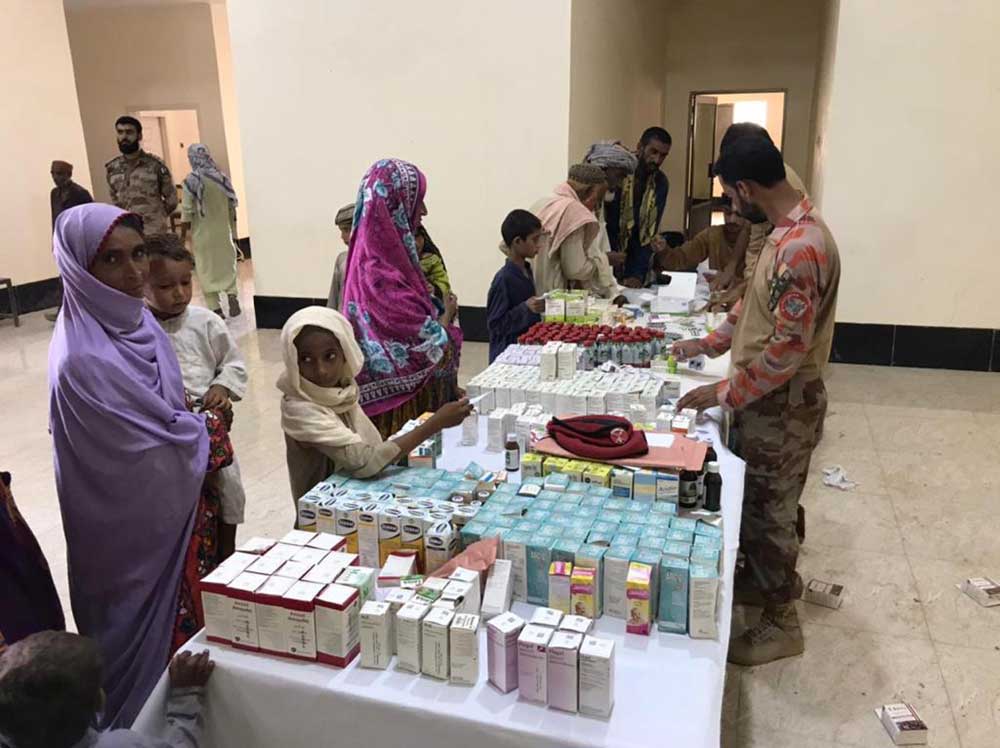
"One of the facilities was the establishment of health camps by the government where women got the direction that they can approach there for examination and can get free of cost medicines," she said.
What the pregnant women surviving in the camps camps needed most, she said, was enough to eat. The initial days were difficult, she added, but now the government has streamlined the emergency health system and ensured that women and children are able to get access to preventive healthcare, including vaccination.
"Different relief organisations and governmental immunsation programmes worked at health camps to provide maternal care when there was no existence of primary healthcare structure," she said.
That there hasn’t been larger-scale disaster among the pregnant, flood-hit population “reflects how the maternal health system and immunisation system intervened to protect them.”
– Dr Malik
Tasneem said that at this point, she is able to access antenatal care in the flood camps, and get all the medicine and required vaccinations that she needs, free of cost.
Dr Sana Malik, a gynaecologist working with a relief organisation operational in health camps in flood-affected areas of KPK, said pregnant women were the most vulnerable victims of the 2022 floods. Thousands of them are still living in tough conditions, she said, because the rehabilitation process has not been completed in many parts of the flood-hit areas.
She added that many pregnant women in camps were exposed to gastric and waterborne diseases, malnutrition, and depression.
Dr Malik said the floods had damaged the immunisation system in the worst-affected areas. "Now there was a whole shift required to establish and provide services of gynaecology and immunisation to above 30 million displaced persons, which included 650,000 women," she said.
But with international support, she said, and using local resources, the immunisation programme was managing to reach the targeted population. Meanwhile, OBGYN services were also provided to keep displaced pregnant women well and safe.
That there hasn't been larger-scale disaster among the pregnant, flood-hit population "reflects how the maternal health system and immunisation system intervened to protect them," said Dr Malik.
A spokesperson for the Ministry of National Health Services Regulations and Coordination, Sajid Shah, echoed her: "Efforts did work, though the government faced challenges, but the scale of problems dealing with pregnant women and immunisation remained in control," he said, crediting Pakistan's international partners for their assistance.
UN agencies warned about the vulnerability of pregnant women and issues of malnutrition and vaccination in the flood-hit areas, he said. The federal ministry responded by establishing health camps in the affected areas to provide people with all possible healthcare services.
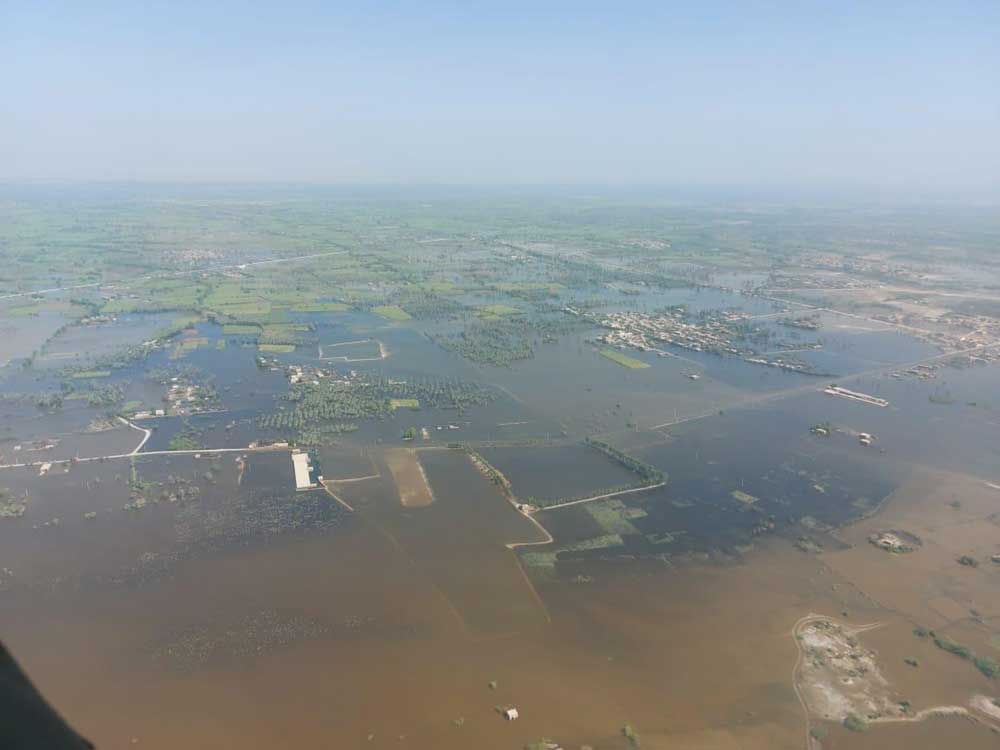
Shah said WHO was supporting the Pakistan government and the parts of the immunisation programme that took damage amid the floods. The programme was re-aligning itself to better reach the people with life-saving preventive care, he said, particularly pregnant women and children. That work continues.
"A collective effort and a strong immunisation programme structure has so far saved us from any health tragedy related to pregnant women, but still the world needs to do more for the flood-hit people in Pakistan – for their rehabilitation and safe health," said Shah.
All pictures provided by the Ministry of National Health Services and the National Disaster Management Authority
